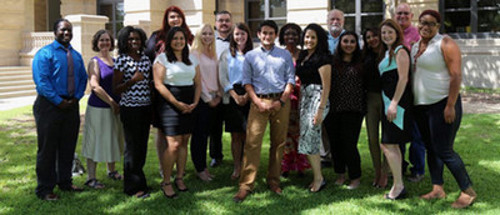NSF REU Site: Research in Social Inequality and Social Problems
This program was funded by the National Science Foundation (NSF) under grant #1757813 for summer programs in 2018, 2019, and 2021, and under grant #2244231 for summers 2024, 2025 and 2026.
Professor Hernandez discusses the REU program
The REU program provides top undergraduates from around the country the opportunity to actively participate in the creation of knowledge. With the help of world-class faculty, students are provided all of the instruction and tools needed to examine the world around around them and contribute to the field.
Research Projects and Activities: At a Glance

Nationally known faculty will involve students in on-going research projects in areas such as:
- Residential segregation
- Disparities in education
- Disparities in housing and neighborhoods
- Quantitative and qualitative analysis of disparities
- Mapping and other visualization of disparities
- Communicating social science research
- Disparities in criminal justice outcomes and familial impacts
- Immigration and migration
- Measurement of racial and ethnic categories
Program Activities
- Participation in research project working with faculty supervisor/mentor
- Participation in advanced undergraduate seminar in research methods
- Mentoring and guest speakers focusing on graduate training and careers in social science research
- Presenting research findings at end-of-program Research Symposium and at a professional conference
Location
- Texas A&M University, College Station, Texas
Residential
- Dates: June 2nd to July 25th
- Stipend, room, board, and program travel provided
2025 Cohort Application
- The application will become available on this site (see above).
Eligibility
NSF program guidelines stipulate that students must be US Citizens or permanent residents and be working toward a four-year degree (graduating December 2025 or later). In addition, our program requires that students have the support and endorsement of a home campus faculty mentor.
